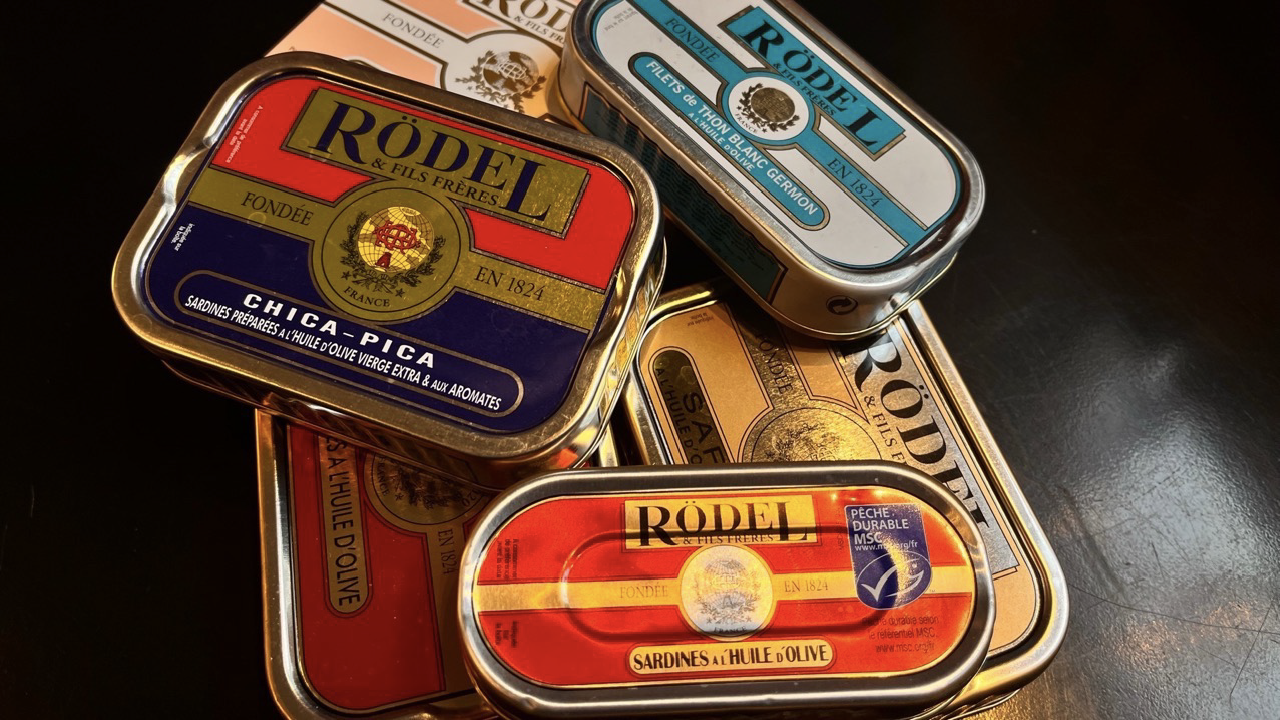OUR STORY IS PART OF FRENCH HISTORY
The pioneer of canning Charles Désiré Rödel, was born in 1793, a child of the Revolution in more than one way since he was one of the actors in the tremendous change in French society
In 1820 French government asked Charles D. RÖDEL the best student of Nicolas Appert, to build up the cannery in BORDEAUX to supply Royal NAVY.
"Since 1824, Rödel & Fils Frères has preserved the finest delicacies and become a proud ambassador of French gastronomy."

Rödel's canned sardines became famous around the World thanks to Navy captains who bought Rödel goods and sold them abroad at great profit.
Very soon, we were shipping our sardines to Shanghai, Hanoi, and Tokyo. Among our customers were Lord Mountbatten, 1st Earl of Burma and Viceroy of India; Brazilian Emperor Pedro II; and many other distinguished figures of European society.
Rodel &Fils Frères shop in Canton Street 1 SHANGHAI 1912
GOLDEN AGE
When Charles and later Victoria passed away in 1870, their grandsons took over the factory
Production expanded: sardines in Brittany, meat and vegetables in Bordeaux.
Rödel acquired shares in the English company Crosse & Blackwell as well as shares of the firm Dandicolle & Gaudin. At its peak, the company employed 1,500 workers in 11 factories

Rödel employees in 1921, when family business became shareholding company RÖDEL s.a.s.
Journey to 21st.Century
Over time, the canning industry changed, and production shifted to Spain and Portugal in search of lower costs. This trend later extended to Morocco, Algeria, and other destinations.
The sardine crisis struck the Brittany coast, and the original Atlantic sardines, once fished by local fishermen, were replaced by industrial fishing methods that harmed oceans and seas.
Determined to protect our legacy, we chose to maintain only a limited production of the highest-quality products, crafted in Brittany and sourced from local fishermen. We supply them exclusively to a select few iconic French stores, such as La Grande Épicerie and Galeries Lafayette - places where customers come in search of perfection and tradition.
This has made us a mystical brand for gourmets.
The LEGEND of QUALITY

A LIVING LEGEND
What you taste today is the result of this long journey, a blend of uniqueness, authenticity, perfection, and the enduring soul of its place of origin.
Curiosities from History
In 1790, a young and ambitious Napoleon Bonaparte offered a reward to anyone who could find a way to preserve food for his army.
By 1795, Nicolas Appert had done just that — inventing a method of sealing food in airtight glass jars. The technique was deemed so valuable it remained a state secret until 1809.
Until his death in 1921, Napoleon Bonaparte was supplied with canned food from a Bordeaux cannery serving the Royal Navy, founded by Charles Désiré Rödel.
And in 1848, the firm Rodel & Fils Frères proudly supplied the presidential palace — serving none other than Louis-Napoléon Bonaparte, France’s first elected president and the emperor’s nephew.
SHORT STORY OF PRESERVATION
For his first preservation he used Glass jar
Nicolas Appert Inventor of food preservation - APPERTISATION
The first Tinplate can created by Bryan DONKIN
First Sardines cans looks familiar but you needed knife and hammer to open it.








